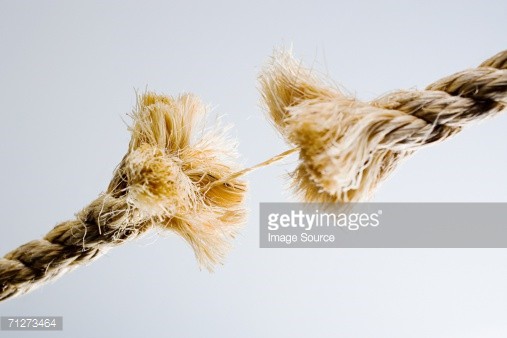This presidential election cycle has been, to borrow a phrase, deplorable. It’s no surprise that many voters feel disillusioned with American democracy. Mr. Trump’s recent dismissal of sexual assault commentary as “locker-room talk” is the latest in a series of racist, sexist, anti-immigrant, and Islamophobic rhetoric. Neither candidate is predicted to be deemed a “good” or “great” president. The Clinton campaign has its fair share of controversies, too. Many Americans, especially Catholics, couch their conversations about voting in terms of the least bad option. It’s as if our imaginations have failed. Like startled, cornered animals, we lash out at a confusing world in an attempt to find comfort and control, no matter how distasteful or problematic our attacks might be.
Today’s America feels insecure, and that is causing us to be afraid. If people lose their jobs at the age of 53 when their company moves overseas, they likely can’t find new ones. People feel forgotten and left behind by politicians, Democrats and Republicans alike, who are accused of squandering American prosperity in the service of themselves. Most people think the future will be worse. In articulating their concerns, some of these people are deemed deplorable.
Our modern world suffers from a loss of stable meaning and community. In a recent article, Paddy Gilger, SJ argues that we’ve lost our sense of community. We really don’t trust our government. Our news sources have clear biases. And we feel less secure than before.
We can point to examples in our own world. We’ve moved from a post-9/11 world to a world where terrorism could happen at any moment at any place. And then there’s economic insecurity: even recent college graduates still struggle to find jobs when previously, they might have secured a range of positions at lucrative companies.
When we are afraid and need to recover a sense of stability and belonging, Gilger notes that we can often fall back to problematic routes towards reclaiming stable meaning: a strong (male) leader and nostalgia.
The appeal to a strong (male) is problematic because, well, firstly it discounts women as possible leaders. But equally important, often “the strong man create[s] stable communities by exclusion and scapegoating.” Most of us don’t feel like we are in control of the economy or terrorist threats. Yet when a political strong man names clear scapegoats, we can personalize those global forces and target our anger. In other words, appeals to [insert your favorite scapegoat group here] demonize groups of people while masking the effects of globalization that we can’t control.
We can also turn to nostalgia, an imagined better time of community and stability. We all are obsessed with a nostalgic “better age” where everything was perfect. Liberals fixate on the 60s and 70s while conservatives fantasize about the 50s or 80s. Let’s face it, though: no time was ever perfect. But Trump’s “Make America Great Again” campaign slogan captures our longing for the past days when life was better. Insecure, we all want America to go back to the glory days during [insert your favorite decade here] of greatness: the days when jobs, community, and meaning weren’t subject to changing demographics and frequently changing economic speculations. We’ll get back to stability and community, and then, America will be great again.
***
Regardless of our political leanings – whether we think we’re stronger together or we need to make America great again, we all are searching for stability and belonging. I want stability and belonging, too. I can see my own seemingly clear ideas of the way the world works become messy and confusing as the experiences of others are vocalized in the public sphere. Questioning these categories is agonizing. Living with the instabilities of the economy and global terror is truly terrorizing.
At the end of the day, any scapegoating tactic, whether used by Democrats or Republicans, comes with a heavy price tag: the demonization of so many groups both in and out of our country. I respectfully disagree with any politician who think he or she will bring back the America they nostalgically remember at the cost of someone else.
I can empathize with the desire for a strong leader whose use of nostalgia provides a remembering of belonging and stability. But it’s too simple to write people off as terrible racists and sexists, or completely detached elitists. Instead, perhaps they’re just like me: looking for stability and belonging, for comfort and security, for the promise that tomorrow will be better than now. Can we imagine a place where that hope and security doesn’t come at the expense of “the other camp?” Can we imagine a place where we make America great again by being stronger together?


